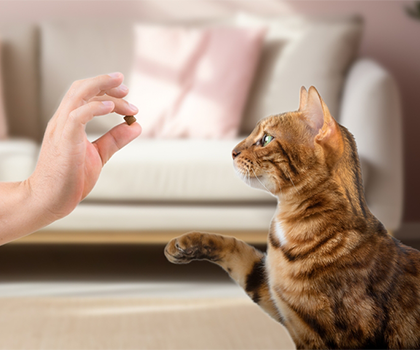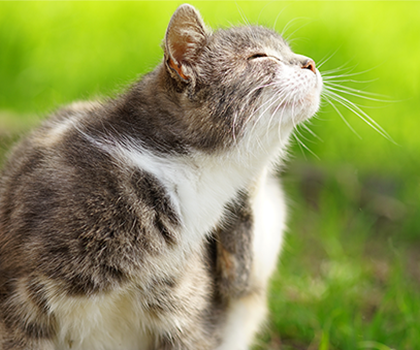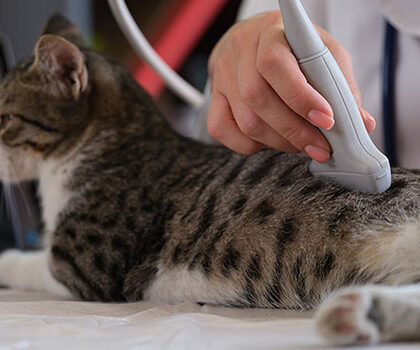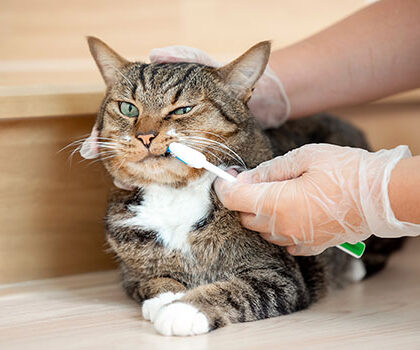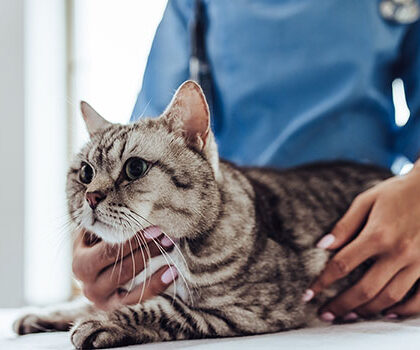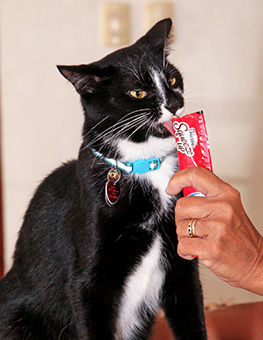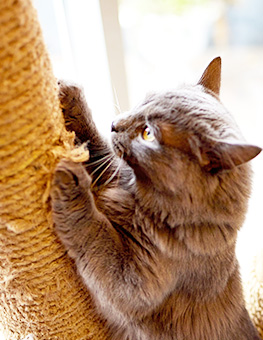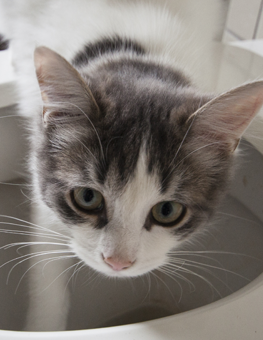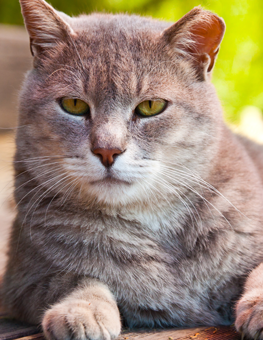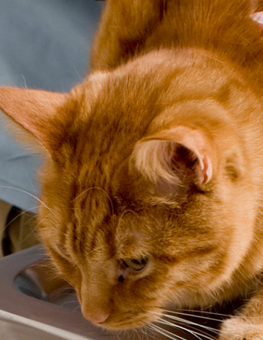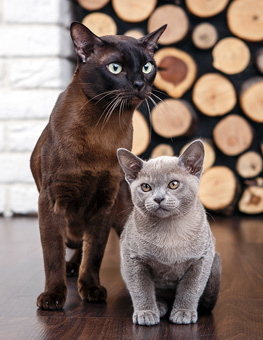SILVER VINE Questions and Answers with Sebastiaan Bol, Ph.D.
Not all plants produce smells that are loved by cats, but silver vine does. Why exactly cats love these smells is still a big mystery. Hartz has silver vine questions and answers.
What is silver vine?
Silver vine is a plant that grows similarly to a grape vine. It grows and climbs in Asia and is common in Japan and China. Silver vine has beautiful flowers in the spring and produces small kiwi fruits in the summer. The plant actually is a member of the kiwi plant family.
How is it possible that cats like silver vine?
Plants cannot move and to defend themselves against insects they often produce smells that the insects do not like. Humans cannot really detect these smells, but it appears cats can! Not all plants produce smells that are loved by cats, but silver vine does. Why exactly cats love these smells is still a big mystery - nobody really knows.
Is silver vine safe?
Yes. Cats have been in contact with this plant in nature for as long as they have existed. There are no reports of toxicity or adverse effects in cats known. The name “silver” has nothing to do with the metal silver, but is used to name this plant because a part of its leaves is sometimes white/silver-colored.
How do cats respond to silver vine?
A cat’s response to silver vine typically involves rolling around on its side or back, giving cheek or chin rubs, bunny kicking and sometimes minor drooling. The cat wants to stay close to the source of the smell and probably wants to engulf itself in the aroma! The response, however, depends on a few things. The first one being the cat. Not all cats respond equally. There may be genetic or personality traits that affect how and if the cat responds.
Furthermore, how a cat responds depends on which part of the silver vine plant is offered to the cat. Silver vine fruit galls are the part of the plant that your cat will love most! Stem (wood), leaves and normal silver vine fruit contain much less of the compounds that produce the smell than dried silver vine fruit galls do. Fruit galls are funny looking fruits that look unusual because of insects having attacked the fruit. If there are no insects attacking the fruit, the fruit would have a more normal appearance and the plant would not produce fruit galls. During the attack the plant will protect itself by producing a lot of smell compounds to deter the insects, and most compounds are produced in the fruit.
Do cats become aggressive in response to silver vine?
No. Cats do not become aggressive in response to silver vine. In fact, observations by scientists seem to suggest that cats who normally do not get along very well interact more positively with each other after they have been exposed to silver vine and similar plants. As with any toy, cats may respond negatively if they are rudely interrupted during play. When more than one cat is present, it is recommended to give each cat its own silver vine toy, to prevent them from fighting over it.
How does it compare to catnip?
Catnip and silver vine are both plants that are safe for cats and humans. Exposure to either of these plants can make your cat quite happy and excited. Research seems to suggest that silver vine contains more and different compounds that cats like and respond to. This may be why some cats who do not respond to catnip, do love silver vine.
Why should I give my cat silver vine if catnip is working just fine?
Variation. You can like football, but also enjoy watching basketball and baseball, correct? You can love chocolate, but also crave potato chips or ice cream, right? Cats also appreciate variation. In addition, silver vine contains more and different active compounds than catnip, which may result in a potentially longer or more intense response of your cat to silver vine as compared to catnip.
How often should I let my cat play with the silver vine toy?
As with anything in life, we get used to things. You may not hear the clock tick anymore or the train passing by because you have been hearing it so many times. The same is true for smells we get used to them. It is no different for cats! When cats are continuously exposed to the smell of silver vine (or catnip), they will get used to it and it will become less special for them. Therefore, it is recommended to offer the toy to your cat only a couple of times a week for no longer than about an hour. It is believed that cats who respond incredibly intensely at first, get used to the smell quickest.
Can my cat eat silver vine?
It is not recommended to feed silver vine to your cat, simply because the effects of eating silver vine have not been studied. However, accidental ingestion of silver vine is no reason for concern. As is true for anything you see your cat ingest, when you see your cat showing abnormal behavior or signs of distress in response to ingestion of silver vine (coughing, excessive drooling, not eating, inactivity, not playing, excessive meowing, etc.) always contact your veterinarian.





